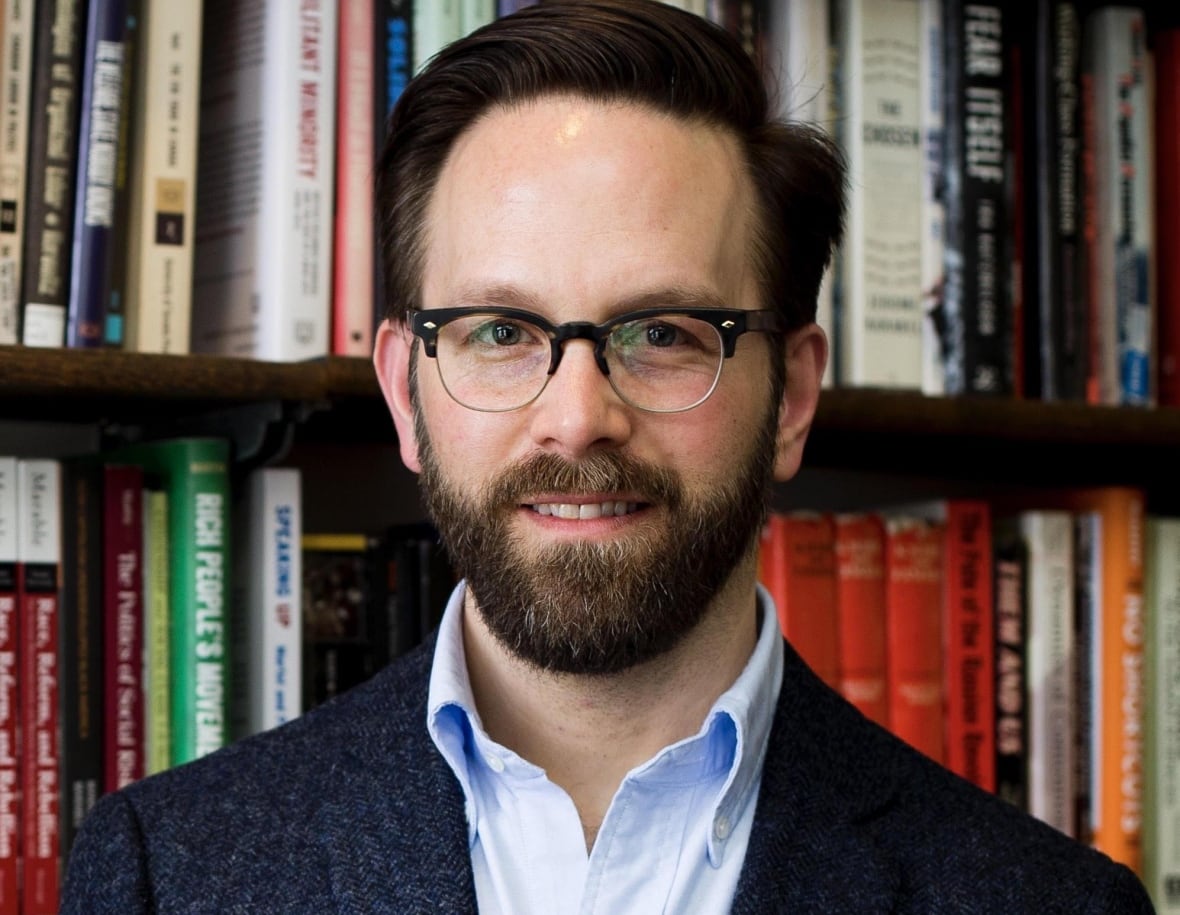McGill faculty challenge Quebec's Bill 89, arguing it violates constitutional right to strike
'Legislation represents a frontal attack on workers' fundamental rights,' says professor
Four McGill University faculty associations representing more than 500 academics have filed a court challenge against Quebec's Bill 89, arguing the provincial legislation violates the constitutional right to strike.
The Confederation of Faculty Associations of McGill (COFAM) announced Tuesday the groups filed an application for judicial review in Quebec Superior Court, seeking to overturn the law — declaring it unconstitutional and invalid as of the date it was passed.
The bill was adopted in May and is set to go into effect at the end of November.
Entitled "An Act to give greater consideration to the needs of the population in the event of a strike or a lock-out," the law gives the labour minister broad powers to restrict strikes deemed harmful to the public.
The legislation includes provisions that broaden the types of services that need to be maintained during work stoppages to ensure "the well-being of the population."
"This legislation represents a frontal attack on workers' fundamental rights," Evan Fox-Decent, a law professor and president of the Association of McGill Professors of Law, said in a COFAM news release.
Fox-Decent notes the Supreme Court of Canada's 2015 ruling in Saskatchewan Federation of Labour, which found the right to strike has been recognized as the "irreducible minimum" of freedom of association.
"Bill 89 attempts to overturn this constitutional protection," he said.
Barry Eidlin, vice-president of the Association of McGill Professors of the Faculty of Arts, said the law risks allowing the government to impose service requirements on universities during labour disputes, threatening academic independence.

"As university faculty, we have a particular responsibility to defend constitutional rights and the rule of law," Eidlin, who specializes in labour movements, said in the release.
In an interview with CBC News, Eidlin said the law is dangerous from a labour relations perspective because it "erodes the very foundation on which collective bargaining occurs in Quebec."
For meaningful bargaining to exist, the parties need to be on a level playing field, he said.
Employers have many tools at their disposal to leverage their power over workers, while workers have only one tool at their disposal — the power to collectively withhold their labour, he explained. Taking away that leverage skews the playing field in favour of the employers.
"It removes the incentive of the employer to actually reach an agreement, because they know they have a trick up their sleeve," said Eidlin, adding that employers can drag out their process until the employees are ordered back to work.
The four associations involved in the legal challenge include the Association of McGill Academic Staff of the School of Continuing Studies, the Association of McGill Professors of the Faculty of Arts, the Association of McGill Professors of Education and the Association of McGill Professors of Law.
Labour Minister Jean Boulet's office declined to comment on the legal action taken by McGill faculty, saying the case is now before the courts.
More legal challenges in the works
Éric Gingras, the president of the Centrale des syndicats du Québec (CSQ), an umbrella union representing most public-sector workers in the province, said he wasn't surprised by the legal challenge.
"When the CSQ went in front of the parliamentary committee, we even said that we will not, we couldn't propose any modification to the the legislation because we thought it was unconstitutional," he said. "It's a direct hit to workers around Quebec."
The CSQ is planning its own legal action and is in talks with other labour unions including the FTQ, CSN and CSD to plan out how best to challenge the law.
Like Fox-Decent, Gingras pointed to the 2015 Supreme Court ruling, saying the government was trying to "get in through the back door" by putting in place laws to keep strikes from happening and forcing people back to work.
Also of concern are the minimal service requirements, which Gingras says erodes the bargaining strength of unions by limiting the impact of strikes.
Last February, when Boulet tabled Bill 89, he said it was inspired by recent, long-lasting strikes such as the one at the Notre-Dame-des-Neiges cemetery that resulted in human remains being unearthed by animals. It caused major delays for mourners trying to bury their loved ones.
He also cited the hypothetical situation of an education strike preventing services to children with special needs. Boulet said strikes involving ferries, food transportation and school transit in Quebec were other examples that led his office to draft the bill.
Boulet said he wanted Quebec to have similar powers to the federal government when it forced a return to work for striking Canada Post workers.
With files from Benjamin Shingler

